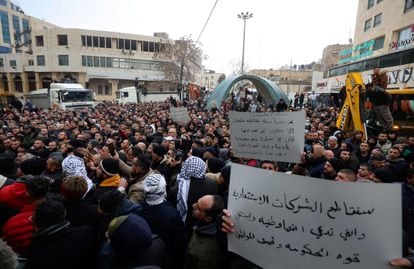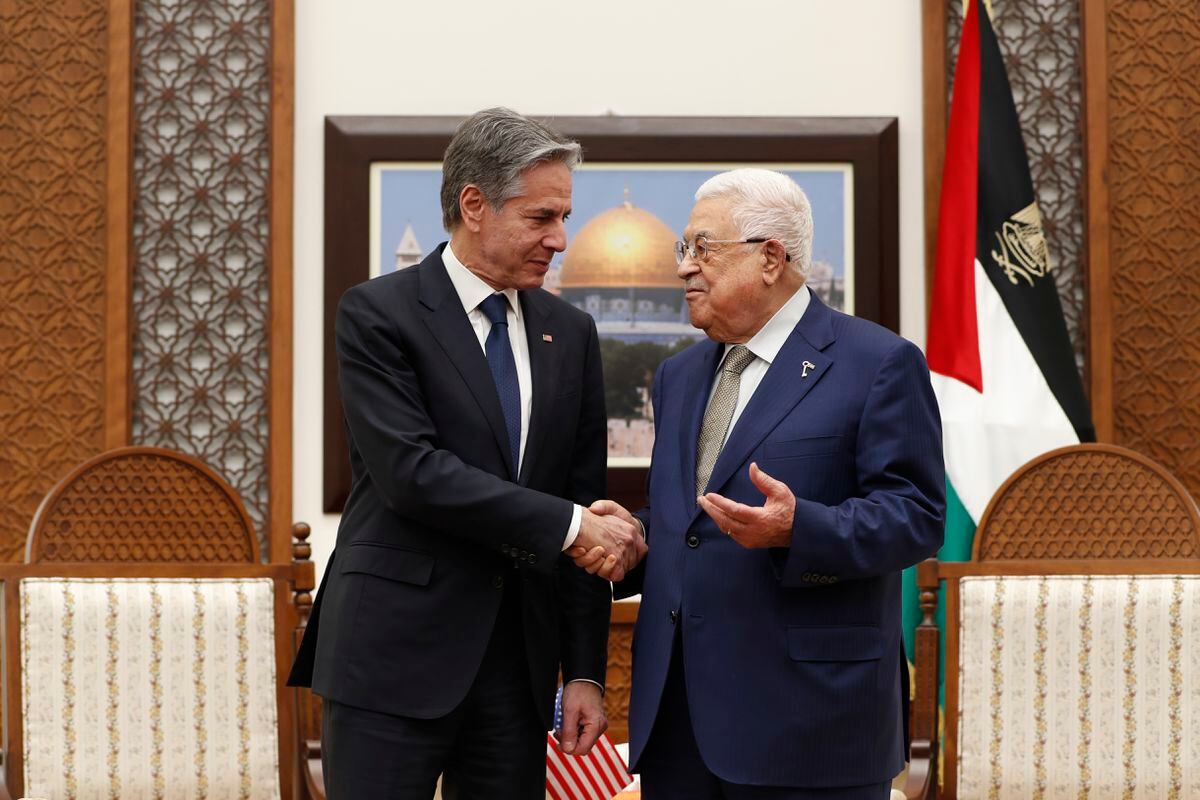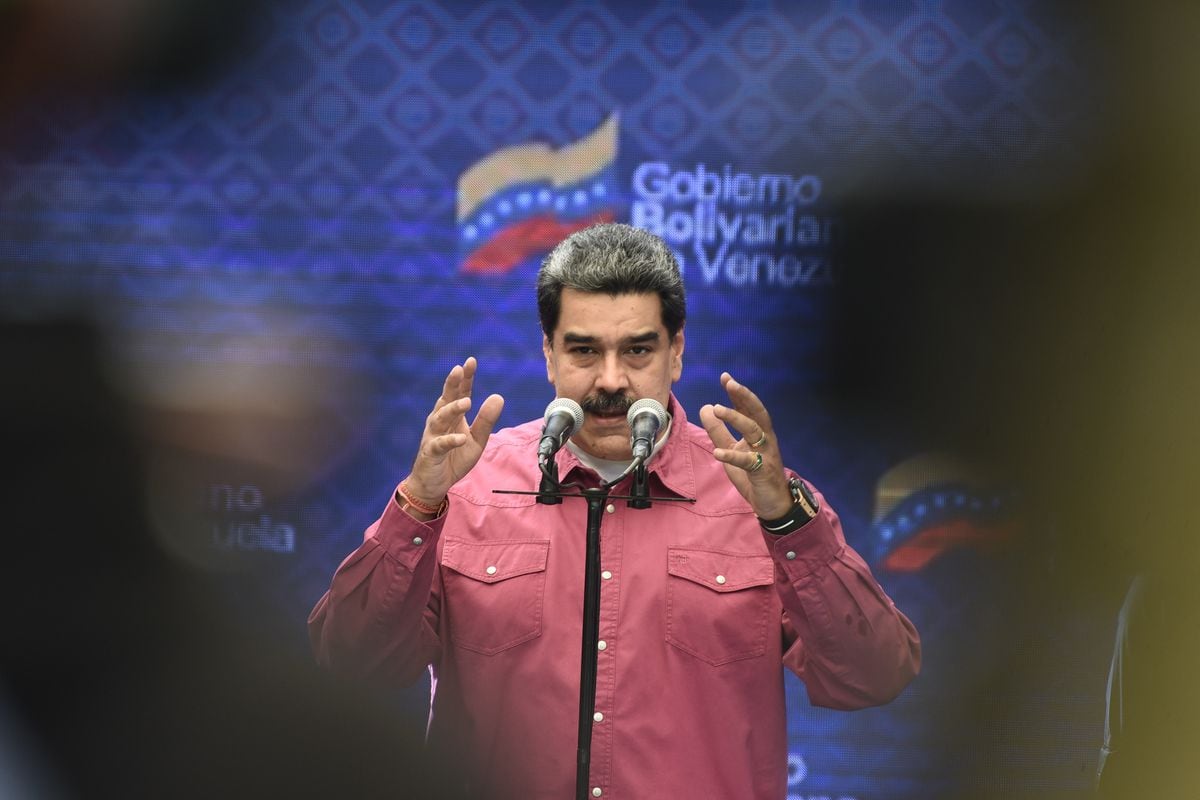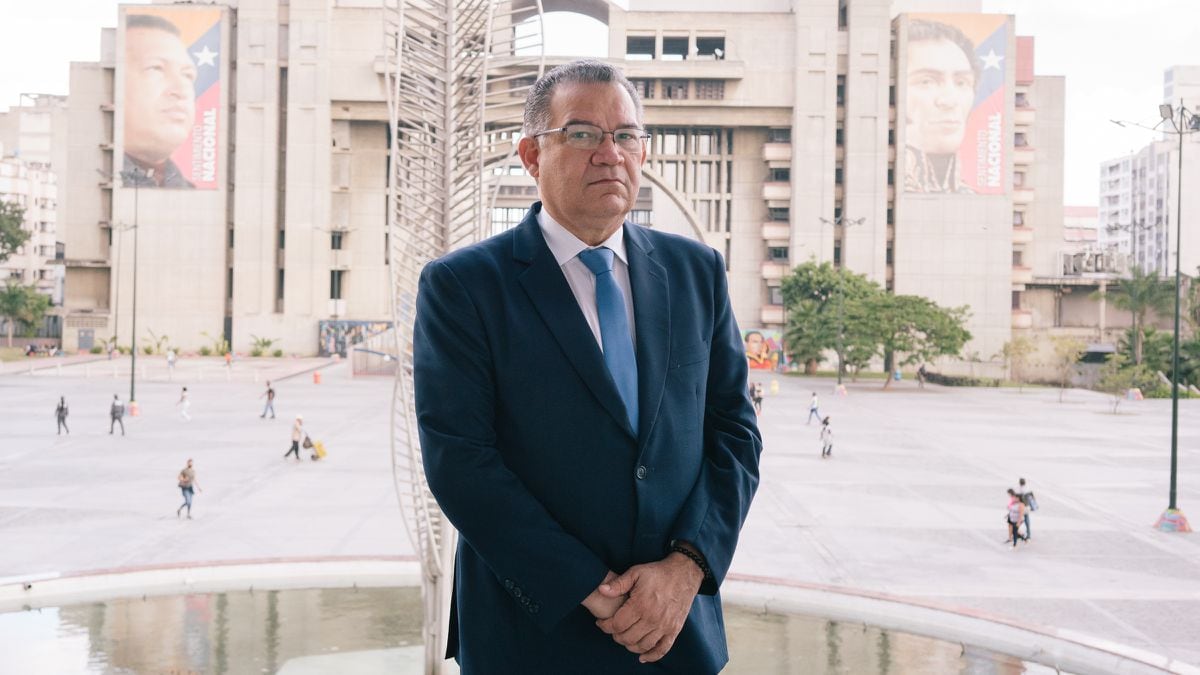President Mahmoud Abbas addresses the Palestine Liberation Organization in Ramallah on Sunday. PALESTINIAN PRESIDENT OFFICE (PP (via REUTERS)
After almost 17 years without being put to the polls again, the president of the Palestinian Authority, Mahmoud Abbas, 86, has placed in key positions leaders of the old guard of the Fatah nationalist party to continue clinging to power and count with potential successors in office.
In the midst of the boycott of the Islamist forces and the left, the Palestine Liberation Organization (PLO) has included in its Executive Committee close collaborators of the
rais
in the meeting held on Sunday and Monday in Ramallah (West Bank) by the Central Council of the organization, recognized by the UN as the highest representation of the Palestinian people.
The Council has not met since 2018.
The Minister for Civil Affairs, Hussein al-Sheikh, 61, is emerging as the elder president's dolphin after being catapulted to the Executive Committee as the favorite for the post of PLO secretary general.
The strategic position has been vacant since the death in 2020 due to the covid of Saeb Erekat, who was present in the Palestinian negotiations with Israel since the Madrid Conference in 1991. Al Sheikh is in charge of relations with Israel within the Palestinian Authority and maintains fluid contacts with the United States.
His name began to gain strength as an applicant when Abbas had him accompany him to meetings he had with Israeli Defense Minister Benny Gantz in August (in Ramallah) and December (in Rosh Haayin, Tel Aviv area).
The head of the intelligence services, Mayid Faraj, 58, also participated in both meetings, but his influential figure usually remains in the shadows and on the sidelines of the internal struggles between candidates for succession.
Al-Sheikh, who has also recently met Israeli Foreign Minister Yair Lapid, has broad political support in the Palestinian president's party apparatus but lacks the popularity of Erekat and other Fatah leaders.
Two other loyalists from Abbas's old guard were also promoted at the recent Ramallah conclave.
On the one hand, Rawhi Fatuh, 73, selected to chair the National Council, the legislative body of the PLO, key in deciding the succession to power.
On the other hand, the economist Mohamed Mustafá, 68, head of the Palestinian Investment Fund, who will occupy the position left on the Executive Committee by the 75-year-old deputy Hanan Ashrawi.
Ashrawi, who also came to prominence on the international stage as a Palestinian spokesperson at the Madrid Conference, resigned last year in protest at the crackdown on popular protests against corruption and the jailing and death of a dissident.
The Islamist movement Hamas and Islamic Jihad did not attend the Ramallah session.
Despite not being part of the PLO, both groups had been invited.
Leftist parties such as the Popular Front for the Liberation of Palestine and the Palestinian Initiative also boycotted the Central Council meeting.
“These appointments are null and lack consensus.
It is a simple internal readjustment of the Abbas team,” warned a Hamas spokesman, quoted by Reuters in Gaza.
The octogenarian Abbas nominally concentrates all power with a triple crown, at least in the West Bank, under the Israeli military occupation that has lasted for more than half a century.
He is president of the Palestinian Authority, of the PLO and leader of Fatah.
In May 2018 he was released from a Ramallah hospital, where he had been kept for more than a week amid secrecy.
A heavy smoker and obviously overweight, his official agenda is usually overloaded despite his age.
In 2016 he underwent surgery for a cardiac complication.
The Palestinian
rais
has not left his succession tied.
The prospect of his sudden disappearance causes concern among diplomatic leaders, beginning with those of Israel and continuing with those of the US and the EU, who entrust the stability of the West Bank to his permanence in power.
The Basic Law, the Palestinian constitutional text, provides that if the president dies or is incapacitated, the president of the Legislative Council must temporarily occupy the presidency during the organization of the elections.
At the head of the Parliament - which has not been renewed or met since 2006 - is a Hamas deputy.
Elected president in 2005 for a four-year term, he has continued to control the reins of all the centers of power without ever submitting himself to the scrutiny of the ballot box.
Last year he called legislative and presidential elections, but canceled them a few months later on the pretext that Israel would not allow Palestinian residents of East Jerusalem to vote.
Nationalist leaders who had armed forces or groups at their command – the former head of the security forces in Gaza Mohamed Dahlan, 60, and the former leader of the Second Intifada Marwan Barguti, 62 – have popular support among Palestinians.
The first, sponsored by Egypt and the Gulf countries, lives in exile in Dubai after having faced Abbas in the past.
He has influence among secular nationalist sectors in Gaza and in refugee camps in the West Bank with the presence of armed groups affiliated with Fatah.
Barguti is serving several life sentences in a prison in Israel, whose justice sentenced him on charges of terrorism as the person most responsible for attacks during the Second Intifada (2000-2005).
He remains a Palestinian street favorite and his figure, recognized throughout Palestinian society as a symbol against the occupation, surpasses that of Hamas leaders in popularity.
Washington is pressing for a shift in a predominantly young society, which calls for an end to authoritarianism and an improvement in the quality of life.
US Secretary of State Antony Blinken phoned President Abbas last week to demand “reforms” in the Palestinian Authority.
The president made a vague allusion to the need for reforms and unity among the Palestinian forces in his speech to the PLO leadership on Sunday night, but the 'status quo' remains unchanged.
Surveys show that more than two thirds of Palestinians demand the departure of the
rais
from power, after more than three decades marked by corruption (which extends to the family of the president) and the repression of the peaceful opposition.
The absence of national electoral processes has also deprived Abbas of the legitimacy that he inherited with the death in 2004 of the historic Palestinian leader, Yasir Arafat.
In the midst of the economic crisis resulting from the pandemic that is hitting the West Bank, Israel is now only offering economy in exchange for peace, but without territory for a state.
Demonstration against the Palestinian Authority, on Sunday in Ramallah. HAZEM BADER (AFP)
The solution of a confederation
Two former negotiators have picked up the witness of the dialogue between Israelis and Palestinians suspended since 2014. Currently, Israel's heterogeneous broad-coalition government (with supporters and opponents of a Palestinian state) does not include in its program the return to the talks table .
Former minister Yosi Beilin, one of the architects of the 1993 Oslo Accords, and the Palestinian jurist Hiba Husseini, who participated in negotiating rounds in 1994, have recovered the spirit of the so-called Geneva Initiative, a detailed peace plan presented in 2003 that only materialized on paper.
A similar path predictably awaits Beilin and Husseini's proposal to form an Israel-Palestinian confederation to address the impasse on the two-state solution.
The axis of this initiative is territorial exchange, to regroup blocs of Jewish settlements in the West Bank, on the one hand, and Israeli areas with a majority Palestinian population, on the other.
It also contemplates the permanence of the rest of the settlers in the newly planted Palestinian State as permanent residents.
Both authors of the project plan to present it this Friday to the UN Secretary General, António Guterres, according to the
Times of Israel information digital portal.
The good intentions of the promoters of the confederal initiative are on a collision course with the reality of the facts on the ground.
The Palestinian Authority only maintains exclusive control over the so-called area A –the big cities and their surroundings–, which represents 18% of the West Bank.
Israeli troops continue to penetrate at will, however, within that perimeter for security reasons.
In another 21% of the territory, the Palestinians assume civil management while the Army takes care of monitoring the so-called area B, which includes smaller populations.
The remaining 61%, Area C, is entirely in Israeli hands.
East Jerusalem, annexed by the Jewish state in 1980, is the future capital of a non-existent Palestinian state.
And in the Gaza strip, Hamas has been imposing a de facto government since 2007. All attempts at reconciliation between Fatah and Hamas have collided with the sectarian schism that poisons relations between the political factions.
For three decades, Mahmoud Abbas has worked to build the Palestinian institutions that he helped bring forth in the Oslo Accords.
The executors of this legacy, co-opted from a political old guard without popular endorsement, now seem to be far removed from the social majority in Palestine.
Follow all the international information on
and
, or in
our weekly newsletter
.
Exclusive content for subscribers
read without limits
subscribe
I'm already a subscriber


/cloudfront-eu-central-1.images.arcpublishing.com/prisa/C4JE3LB6ZJWHFQWKTFD4Y3SAQE.jpg)




/cloudfront-eu-central-1.images.arcpublishing.com/prisa/AQ3TMH4XC6A7SIRUJNPMPBERDU.jpg)







